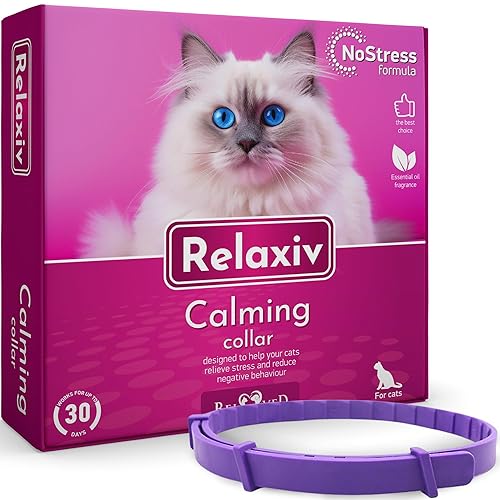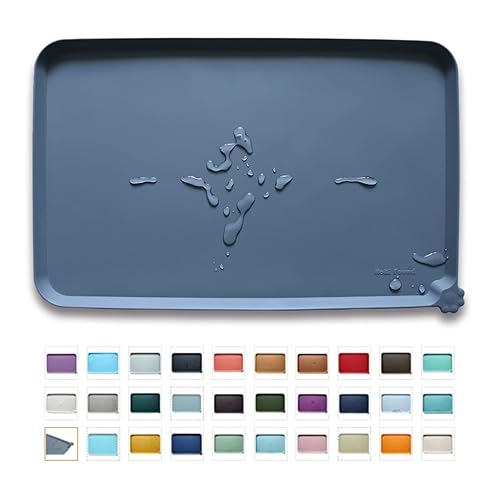Common Medical Causes for Inappropriate Urination
One of the reasons your elderly cat may be peeing on the floor is due to medical issues. It’s important to understand these common medical causes for inappropriate urination in order to address the problem effectively. Here are a few possible reasons:
- Urinary Tract Infection (UTI): UTIs can cause discomfort and lead to urinating outside the litter box. Look out for signs such as frequent urination, blood in the urine, or straining during urination.
- Bladder Stones: These can form in your cat’s bladder and cause pain and inflammation, making them more likely to urinate outside the litter box. A visit to the veterinarian can help identify if your cat has bladder stones.
- Kidney Disease: Cats with kidney disease may have increased thirst and urination, often leading to accidents outside the litter box. Regular check-ups with your veterinarian can help monitor your cat’s kidney health.
- Diabetes: Just like humans, cats can develop diabetes. Increased thirst, urination, and weight loss are common symptoms. If you suspect diabetes, consult with your veterinarian for proper diagnosis and management.
- Arthritis or Joint Pain: Aging cats may develop arthritis, causing them discomfort or difficulty in entering or exiting the litter box. Providing a litter box with low sides or a ramp can help alleviate this issue.
- Hyperthyroidism: Overactive thyroid glands can lead to increased urination and accidents. If your cat is experiencing weight loss, increased appetite, and hyperactivity along with inappropriate urination, consult with your veterinarian.
Remember, identifying the root cause of your cat’s inappropriate urination is crucial in finding the right solution. If you suspect any medical issue, consult with your veterinarian as soon as possible. Early detection and proper treatment can significantly improve your cat’s health and reduce accidents.
Age-Related Changes in Cats’ Bathroom Habits
As your beloved feline companion ages, you may notice some changes in their bathroom habits. Just like humans, cats can experience certain age-related issues that can lead to inappropriate urination. Here are some reasons why your elderly cat might be peeing on the floor:
1. Declining bladder control: Older cats may experience a decline in bladder control, leading to accidents outside of the litter box. This can be due to weakened muscles or nerve damage. Consult with your veterinarian to rule out any underlying medical conditions.
2. Difficulty accessing the litter box: Arthritis or joint pain can make it challenging for your cat to climb into the litter box. They may seek alternative spots that are easier to access. Be sure to provide a litter box with low sides, or consider placing ramps or steps near the box to help your cat reach it comfortably.
3. Vision and hearing loss: Cats’ senses naturally decline as they age, and this can affect their bathroom habits. Cats with vision or hearing loss may struggle to find their litter box or feel anxious in unfamiliar environments, leading to accidents.
4. Cognitive changes: Just like humans, cats can experience cognitive decline as they get older. They may forget where their litter box is located or become disoriented, resulting in accidents. Providing multiple litter boxes in easily accessible areas can help them find the right spot.
Remember, it’s essential to differentiate between age-related changes and medical issues. If your cat’s peeing behavior has suddenly changed or is accompanied by other concerning symptoms, it’s crucial to consult your veterinarian for a proper diagnosis and treatment plan.
Understanding the reasons behind your elderly cat’s inappropriate urination can help you address the issue effectively. With patience, understanding, and guidance from your veterinarian, you can help your furry friend enjoy a comfortable and stress-free bathroom experience.
Environmental Factors That Could be Influencing Your Cat’s Behavior
If your elderly cat is peeing on the floor, there could be various environmental factors that are contributing to this behavior. Understanding these factors can help you address the issue and provide a better environment for your furry friend.
1. Litter Box Issues
Ensure that the litter box is easily accessible for your elderly cat. As cats age, they may develop arthritis or joint pain, making it difficult for them to navigate high-sided or covered litter boxes. Consider using a litter box with low sides and an open entrance to make it easier for your cat to use.
2. Box Placement
The location of the litter box is also crucial. Cats prefer privacy and quiet when using the litter box. Place the litter box in a quiet and easily accessible area of your home. Avoid placing it near loud appliances, high foot traffic areas, or in close proximity to their food and water bowls.
3. Stress and Anxiety
Cats are sensitive creatures, and stress or anxiety can affect their bathroom habits. Major changes in their environment, such as moving to a new home, introducing a new pet, or changes in routine, can trigger stress. Create a calm and stable environment for your cat, providing them with a safe space and plenty of opportunities for play and mental stimulation.
4. Cleanliness of the Litter Box
Cats are clean animals and will avoid using a dirty litter box. Scoop the litter box daily and change the litter regularly to maintain cleanliness. If you have multiple cats, provide enough litter boxes to avoid competition and maintain hygiene.
5. Marking Behavior
Sometimes, elderly cats may start peeing on the floor as a way of marking their territory. This behavior can occur due to changes in their social dynamics, such as the introduction of a new cat or changes in the household. Additionally, medical problems, such as urinary tract infections or bladder stones, can also cause marking behavior. It is essential to rule out any underlying medical conditions by consulting with a veterinarian.
Remember that each cat is unique, and the underlying cause of your cat peeing on the floor may vary. By considering these environmental factors and providing a comfortable and stress-free environment, you can help your elderly cat maintain good bathroom habits.
Consulting your veterinarian for a proper diagnosis and treatment plan is crucial to ensure your cat’s health and well-being.
Tips for Addressing Inappropriate Urination in Elderly Cats
As a cat lover, you understand the frustration of dealing with a beloved elderly cat who pees on the floor. Don’t worry, there are some effective tips to help address this issue and improve your kitty’s bathroom habits. Here are a few suggestions that can make a big difference:
- Visit the Vet: First and foremost, it’s essential to rule out any underlying medical conditions. Take your elderly cat to the veterinarian for a thorough examination. Medical issues such as urinary tract infections or kidney disease can contribute to inappropriate urination. A proper diagnosis will guide you in developing the right treatment plan.
- Litter Box Placement: Consider the location of your cat’s litter box. Is it easily accessible? As cats age, they may struggle with mobility. Ensure the litter box is on the same level as your cat, so they don’t have to navigate stairs or high jumps. Additionally, choose a quiet and peaceful area to place the litter box to minimize stress or anxiety.
- Multiple Litter Boxes: Providing multiple litter boxes can be beneficial for elderly cats. Having several options allows them to choose the one they find most comfortable. Place litter boxes in different areas of the house to increase accessibility. Remember, it’s important to keep the litter boxes clean and free of strong odors.
- Litter Box Type: Consider the type of litter box you’re using. Elderly cats may struggle with high-sided or covered litter boxes, especially if they have arthritis or joint pain. Switch to a low-sided litter box that is easily accessible. A senior-friendly litter box with lower sides can make a significant difference.
- Reduce Stress: Stress and anxiety can contribute to inappropriate urination in cats. Ensure your furry friend has a calm and stable environment by providing hiding spots, perches, and scratching posts. Experiment with stress-reducing techniques, such as Feliway diffusers or calming treats, to help your cat feel more relaxed.
Remember, addressing inappropriate urination in elderly cats requires patience and understanding. Each cat is unique, so it may take some trial and error to find what works best for your feline companion. By implementing these tips and working closely with your veterinarian, you can make a positive impact on your cat’s litter box habits.
No conclusion paragraph.
Conclusion
Remember, addressing inappropriate urination in your elderly cat requires a multi-faceted approach. It’s crucial to rule out any underlying medical conditions by taking your cat to the veterinarian for a thorough examination. Once medical issues have been addressed, consider the location and accessibility of the litter box. Providing multiple litter boxes in different areas of your house, using a low-sided litter box, and creating a calm and stable environment can help reduce stress and anxiety.
However, it’s important to be patient and understanding throughout this process. Changing litter box habits takes time, and it’s essential to work closely with your veterinarian to find the best solution for your cat. By following these tips and working together, you can improve your cat’s litter box habits and create a more harmonious living environment for both of you. Don’t hesitate to reach out to your veterinarian for further guidance and support.
Frequently Asked Questions
1. Why is my elderly cat urinating outside the litter box?
Addressing inappropriate urination in elderly cats requires ruling out underlying medical conditions, which should be done by taking the cat to the veterinarian for a thorough examination.
2. How can I prevent my elderly cat from urinating outside the litter box?
Consider the location and accessibility of the litter box, providing multiple litter boxes in different areas of the house, and using a low-sided litter box. Creating a calm and stable environment can also reduce stress and anxiety, helping to prevent urination outside the litter box.
3. What should I do if my elderly cat continues to urinate outside the litter box?
It is important to have patience and understanding when addressing this issue. Working closely with a veterinarian can make a positive impact on the cat’s litter box habits. The vet can provide further guidance and recommend strategies to help resolve the problem.









![Furbo Mini 360° [Subscription Required] New 2K QHD Pet Camera](https://m.media-amazon.com/images/I/71wCIlkWErL._SL500_.jpg)
![Chucks Pads Disposable 30x36 Underpads [50-Pack] Incontinence Chux Pads Absorbent](https://m.media-amazon.com/images/I/91PhOnLIcEL._SL500_.jpg)






